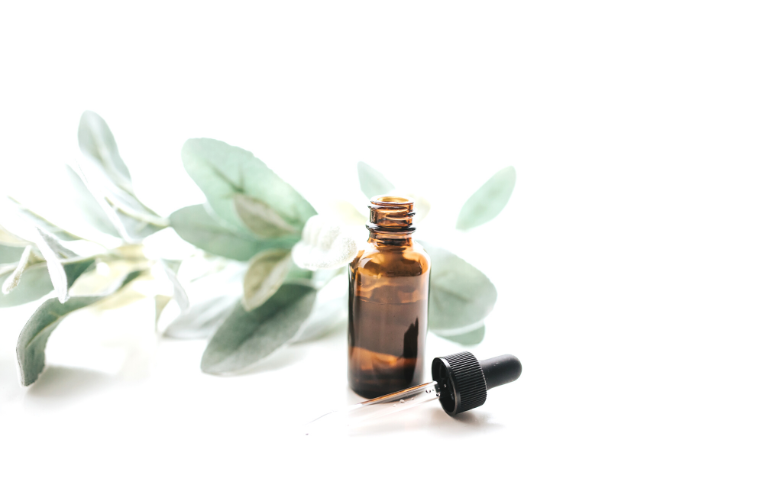
The Fight Against Fragrance
The Concern Over Artificial Fragrances
There is growing fear over artificial fragrances and the lack of transparency behind the word “Fragrance”. The number of people who believe that brands are intentionally hiding toxins in fragrance is truly alarming. In the wake of this revolt, fragrance industry insiders will tell you that artificial fragrances are totally safe and totally regulated and that we should totally trust their expertise. Let them and let us not forget that fear, our most powerful emotion, is driven by lack of knowledge. A lack of transparency of fragrance compounds has resulted in this fear. Perhaps these compounds are completely safe, but how would we possibly know? Even though I have a lot of friends and colleagues in the Fragrance industry, and do believe that fragrance companies care deeply about safety, I do worry about this lack of transparency.
Exploring the Root of Fear
Let’s dig into the root of this fear. It’s a fear of the unknown, and no parent wants to risk harming their children by exposing them to potentially harmful compounds, whether they are natural or not. We are compelled to ask a simple question - if there is nothing to fear in these fragrance mixtures - why wouldn’t the fragrance industry disclose the compounds? I’ve had these conversations with the experts. They will argue it’s their IP (intellectual property) and it should be protected. To me, that’s not a valid argument. Case in point - cosmetic and personal care brands lost their IP protection in the 1970’s. Shampoos, lipsticks and all cosmetic and personal care products had to contain disclosed ingredient lists on their labeling. Meaning, their IP was no longer protected.
That also led to scary label listings like this one (from a major national brand and competitor that shall not be named):

The Fragrance Industry's Free Pass
And yet, the cosmetic industry has continued to thrive, the demand has never been higher. Why then is the fragrance industry continuing to get this free pass?
My gut feeling is that this pass is not free at all, we can thank the powerful food industry lobbyists for the lack of progress here. Think about it - the Flavor & Fragrance Industry is largely driven by the food industry’s prolific use of flavors. And guess what industry has more lobbyists than the Cosmetic & Personal Care industry in Washington, DC?

I concluded that there is no way I could sleep at night not owning and knowing what is in our natural scent mixtures. I fought hard and searched extensively for a partner that would understand the need for this transparency. If you saw how many fragrance questions we get from parents, you’d understand why this is such a big concern and imperative for our formulations. Through parents’ heartbreaking stories about their child’s rare allergies and skin conditions, I learned how much this level of transparency matters. Yes, these conditions are rare and do not apply to most children. However, these families desperately want their children experience the joy of scent in the safest way possible and can only do so when there is radical transparency. Fragrance-free doesn’t have to be their default experience.
Embracing Natural Scents
Humans are not designed to live in a world devoid of scent, and bath time is far less enjoyable when it is devoid of scent. It’s exciting that we can now safely experience scent the way our sense of smell is hardwired to experience scent - through aromatics found in nature.

The last decade we’ve seen so much progress in the area of natural scent development. We’ve seen the largest fragrance houses make acquisitions in the natural ingredient space and we’re now seeing the result. While only a select few are open to the radical transparency that I desired, many can now create 100% natural scents, relatively easily. But the disclosure of these compounds is an ongoing issue many brand owners face in the Cosmetic & Personal care industry.
The Future of Fragrance Transparency
Alas, I am reminded of the unintended consequences that result from good intentions. If the flavor & fragrance industry’s fight for protecting their IP fails, which I predict eventually will happen, the result will likely be more confusion and fear. Many of the compounds used in traditional synthetic fragrance development do not have familial, “friendly” names. Even some of the natural ones sound foreign to the non-chemist/biologist type. Imagine the parents who google every single ingredient on cosmetic labels, these fragrance compounds will face the battle of truth and misinformation from that point on. The court of public opinion will run wild. But let’s remember that “progress isn’t a straight line”. The path to improvement is often filled with ups and downs, rather than a consistent forward trajectory. What will be viewed by many fragrance industry insiders as a “setback”, is a natural part of any journey towards advancement.
Where We Go From Here
Ingredient innovation skyrocketed after the 1970’s ingredient disclosure law was passed in the cosmetic & personal care industry. Suddenly, ingredients - specifically the business of differentiating ingredients - became a gigantic business. The same can be true for the fragrance industry. Until then, the fight continues.






